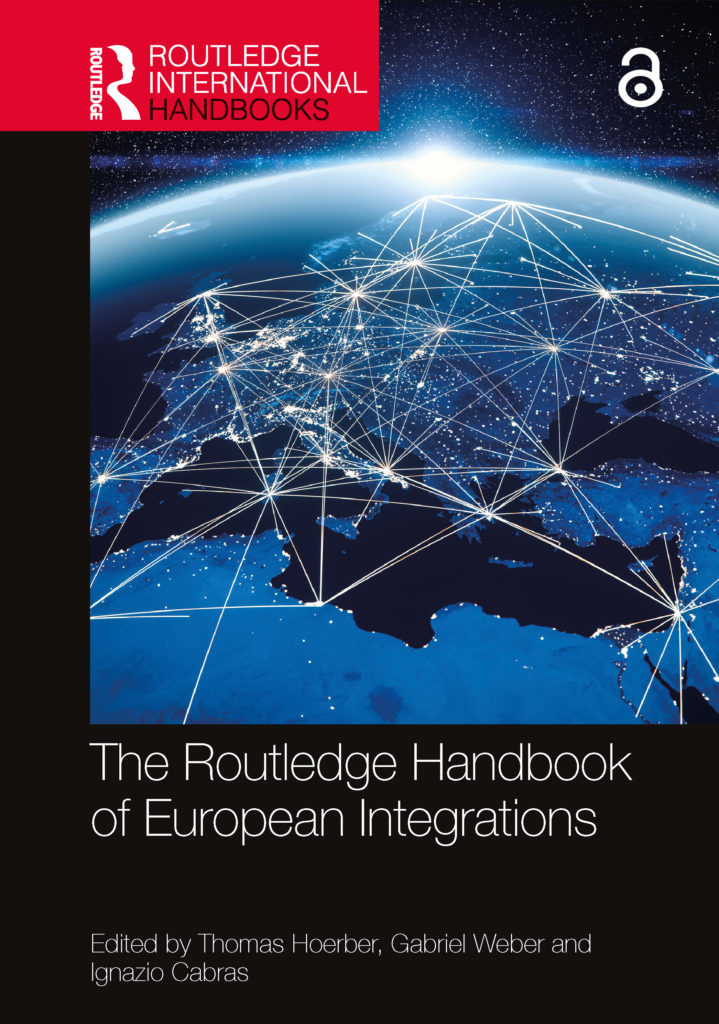
Dr. Maryna Rabinovych and Dr. Anne Pintsch worked together towards a book chapter “EU Differentiated Integration as a Tangible: Internal and External Dimensions” published with the Routledge Handbook of European Integrations, edited by Thomas Hoerber, Gabriel Weber and Ignazio Cabras. The Handbook offers a comprehensive coverage of various aspects of European integration, including the ones “usually neglected or excluded in European integration collections”. Such aspects relate to, for instance, football, tourism, Erasmus, as well as artificial intelligence, transport and energy. Moreover, the Handbook is marked by an insight into tangible benefits European integration has brought about, and this is where the Project Team’s chapter on differentiated integration comes into play.
The contribution explains tangible benefits, intangibles and challenges associated with a broad range of differentiated integration structures both within the EU itself (e.g., enhanced cooperation between Member States) and the ones also involving third states, such as Eastern Neighbours. It is demonstrated that the Association Agreements with Eastern Neighbours create valuable tangibles for the EU in terms of trade liberalization, sectoral cooperation and political dialogue. Strong association relations with third countries also help the Union to increase its visibility and reach in numerous policy domains, such as development and conflict management. Nevertheless, Member States’ divergent geopolitical interests and EU foreign policy’s contestation represent crucial challenges to the further advancement of the EU-Neighbours relations. Differentiation, nevertheless, remains a crucial aspect of European integration, requiring careful management and nuanced research for it to continue producing tangibles, rather than mushrooming challenges.